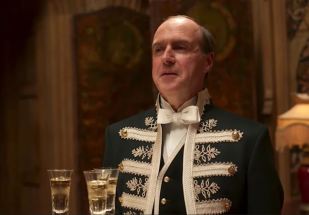
We shouldn’t have come here. If the journey from Earth hadn’t been so tortuous, if we hadn’t felt so weary, and if our ship hadn’t been on the verge of falling apart, I think we’d have turned around, because this world wasn’t what we envisaged.
It was harsh. Cold. We didn’t understand. We thought it was a world to be tamed, a world we could shape in our own image. The reverse was true.
The days are short, but the years are agonizingly long. This world takes decades to orbit its sun. By the time the climate began to warm we had almost forgotten what heat felt like. We welcomed it. We didn’t understand.
The ice melted.
Then we melted.
We assumed it was a disease, some horrible affliction that turned flesh into water. We threw every meagre resource we had left at it. Perhaps if the scientists hadn’t fallen victim first, or if ship’s computers still functioned, we might have understood, though I doubt we could have stopped it.
Drugs. Quarantine. Prayer. Nothing worked. One by one we succumbed. One by one we died. Or thought we did.
The dream followed. A languid, fluid dream. Our thoughts merged, memories slithered and twisted around one another like a nest of snakes. We were no longer individuals, we were a gestalt. It was beautiful, no secrets, and yet no guilt, because we no longer had any sense of self. We floated in perfect chaos all summer long.
Then winter returned, and the ocean froze. Suddenly we found ourselves corporeal once more, only now it was different. Not only because we’d got used to our disembodied dream state, no, it was different because we didn’t coagulate as the individuals we’d once been. Now we were curious, hybrid entities. Mongrels made of memories. A Frankenstein’s monster of thought stitched together from disparate recollections and desires.
We were confused and frightened. We were in pain. Somehow, we evolved the ability to move, becoming stiff, creaking giants of ice. We tried to find harmony, but we didn’t understand ourselves anymore, and we certainly didn’t understand each other. There was fear. Distrust. Liquified togetherness gave way to solidified separation.
We disagreed. We argued. Eventually we fought. Winter was long and violent and terrible. Death was beyond us, but suffering wasn’t.
Summer eventually ended the war. Those rigid creatures of ice collapsed once more into wonderful anarchy. We ebbed and flowed and dreamed, and we were happy. Only now, somewhere in that collective sentience, there was a hint of fear, the knowledge that winter would return.
Which of course it did.
That was so long ago. We cannot comprehend how many winters, how many summers. A thousand? A million? It makes no difference. Time only matters when we’re ice, when we are liquid, we’re beyond such pettiness.
We are solid now. I am solid now.
I am ancient, and yet at the same time brand new, because this particular collection of thoughts and memories has never coalesced before. I am old. I am young. I hurt. I am newly born and already I long for summer, but summer is so very far away.











 300 years in the future Earth has been rendered uninhabitable by a catastrophe known as the Nanocaust. Verity Auger is an archaeologist whose specialty is retrieving historical items from the ruins, and she has a particular interest in Paris. After a disaster during one trip to the ruined Paris she’s offered a way to redeem herself, a once in a lifetime chance to visit a place that shouldn’t exist.
300 years in the future Earth has been rendered uninhabitable by a catastrophe known as the Nanocaust. Verity Auger is an archaeologist whose specialty is retrieving historical items from the ruins, and she has a particular interest in Paris. After a disaster during one trip to the ruined Paris she’s offered a way to redeem herself, a once in a lifetime chance to visit a place that shouldn’t exist.








